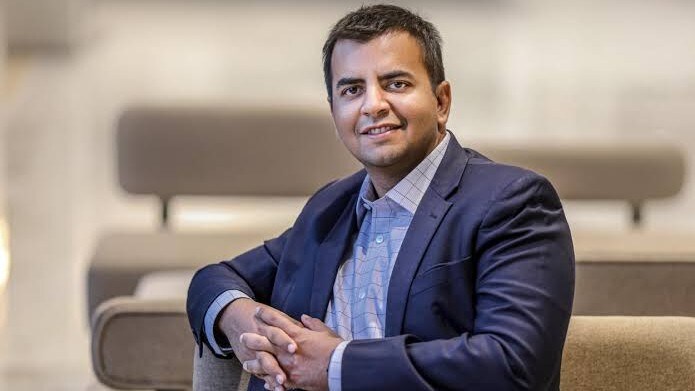Ola Electric Mobility Ltd., already known for its portfolio of e-scooters, is set to expand into the realm of electric motorcycles as it plans to start selling them in the first half of 2025, according to founder Bhavish Aggarwal.
"Most people buy motorcycles for the thrill, speed, and acceleration," Aggarwal told NDTV Profit's Tamanna Inamdar in an interview. "Electric motorcycles excel in all these areas, with superior torque and speed. They offer a compelling proposition for young buyers."
"Our upcoming products will also feature an impressive range," he said, emphasising the appeal of electric motorcycles, particularly their performance.
Next year, the company will begin producing its own cells for its products, which constitute about a third of the vehicle's cost. Manufacturing these cells in India will significantly reduce the costs, according to Aggarwal.

Ola Electric founder and CEO Bhavish Aggarwal. (Photo: company)
Ola Electric has already established an extensive charging network, with over 1,000 hyper-charging points across India. "Our charging network is strategically designed for places where extra charge might be needed, such as long-distance stop points and shopping malls."
He also addressed the fact that replaceable batteries are becoming irrelevant now, suggesting they are becoming less mainstream.
Battery costs have decreased over the years and charging technology has significantly improved.Bhavish Aggarwal
Aggarwal asserted that the Indian government had been the "most supportive" globally, offering various incentives and subsidies through the Faster Adoption and Manufacturing of Hybrid and Electric Vehicles in India and the Production-Linked Incentive schemes. "Although the FAME scheme is phasing out, the industry is adapting well."
Aggarwal expressed confidence in the rapid transition to EVs. "There are many transitional technologies available, but we believe the EV transition will be faster than most expect. The core driving factor is the cost of cells, which has decreased by 10% over the past decade and is expected to continue declining," he said.
"We don't see the need to invest in transitional technologies. Our focus is on creating the technologies and manufacturing processes for the EV future," he said. "In the future, we will build a wide range of products, but for now, we are focused on laying the foundation of the EV revolution."
Essential Business Intelligence, Continuous LIVE TV, Sharp Market Insights, Practical Personal Finance Advice and Latest Stories — On NDTV Profit.























